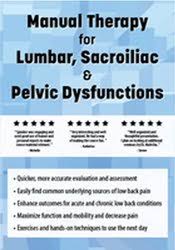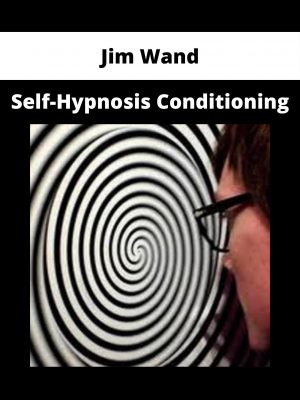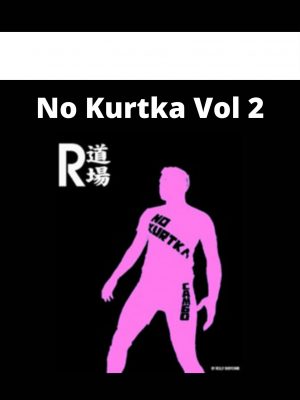Shane Malecha – Manual Therapy for Lumbar, Sacroiliac, & Pelvic Dysfunctions
$200 Original price was: $200.$75Current price is: $75.
Shopping Instructions:
- DISCOUNT 15% : SHOP15
- Product Delivery: Within 1 – 12 hours after purchase.
A brief overview of stabilization exercises will also be covered to ensure long-term effectiveness of the manual corrections. Attendees will be able to immediately utilize these techniques to improve their clinical efficiency.
Shane Malecha – Manual Therapy for Lumbar, Sacroiliac, & Pelvic Dysfunctions
Simplify the complexity of low back pain in this hands-on based seminar. Improve your evaluation and treatment skills for the most common lumbar and sacroiliac joint dysfunctions from a manual therapy perspective. Discover a streamlined approach for care of the lower back that is applicable to both acute and chronic conditions using manual techniques such as mobilization and articulation. A brief overview of stabilization exercises will also be covered to ensure long-term effectiveness of the manual corrections. Attendees will be able to immediately utilize these techniques to improve their clinical efficiency.
- Analyze basic anatomy and the pathomechanics of low back pain
- Identify the principles of manual therapy for the lower back and SI joints
- Demonstrate proper manual therapy techniques for a lower back patient
- Review the most common low back dysfunctions
- Discuss the appropriate application of “progression of forces” concept
- Integrate stabilization exercises for maintenance of manual corrections
Would you like to receive Shane Malecha – Manual Therapy for Lumbar, Sacroiliac, & Pelvic Dysfunctions ?
PRINCIPLES OF ORTHOPEDIC EVALUATION
- Goals of the first visit
- Empathy vs sympathy
- Establishing consistency
- Avoiding clinical blindness
- Who should be referred to therapy
- Red flags
- Keys to subjective and objective evaluations
EPIDEMIOLOGY OF LOW BACK PAIN
- Predisposing factors
- Bony Anatomy of the Lumbar Spine
- Soft tissue anatomy of the Lumbar Spine
- Ligamentous support
- Muscular support
- Intervertebral disc
- Biomechanics of the Lumbar Spine
- Common Diagnoses
- Degenerative Joint Disease
- Spondylosis
- Spondylolysis
- Spondylolisthesis
- Disc protrusion
- Herniated Nucleus Pulposis
EVALUATION OF LUMBAR SPINE DYSFUNCTION
- The key to subjective history
- Posture assessment
- Sitting, Standing, dynamic, lordosis, lateral shift
- Movement loss
- How much
- Quality of the movement
- Willingness to move
- Lateral deviation
- Repeated Movements
- What happens during movement
- What happens because of the movement
- Static tests
- Neurological
- Motor/sensory deficit
- Reflexes
- Dural signs
- Other considerations
- Hip/SI joint clearing tests
- Spondylolisthesis
- Intermittent claudication tests
TREATMENT OF LUMBAR SPINE DYSFUNCTION
- Treatment of the acute patient
- Modalities
- Mid-range movement techniques
- Sub-acute/chronic patient
- Postural syndrome
- Dysfunction syndrome
- Adherent Nerve Root
- Derangement
- Treatment
- Reduction
- Maintain
- Recovery of function
- Prevention
- Manual Therapy techniques
- Prone extension with manual overpressure
- Prone Lumbar extension mobilization
- Flexion Rotation mobilization
Related products
NLP & Hypnosis
NLP & Hypnosis
NLP & Hypnosis
NLP & Hypnosis
NLP & Hypnosis
NLP & Hypnosis
Joseph Cohen – The SelfHacked Secrets To Understanding Why You Are Sick And How To Get Well
NLP & Hypnosis












